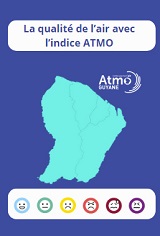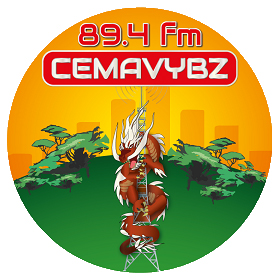Blada.com
mardi 22 avril
Boîtes aux lettres
Courrier des lecteurs
Petites annonces
Emploi / Formation
Covoiturage
Infos citoyennes
Infos citoyennes
19/08/22
D’Antecume Pata à Paris, le voyage de Teusa pour recouvrer la vue
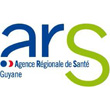 La fillette, qui aura bientôt 7 ans, souffrait de cataracte congénitale. L’opération, couronnée de succès, a dû se dérouler à l’hôpital Fondation Rothschild, à Paris. Ne pouvant être accompagnée par ses parents, elle a été chaperonnée par la médiatrice du CDPS de son village et par de nombreux professionnels du centre hospitalier de Cayenne. En février, quelques jours après l’opération, elle voyait de nouveau.
La fillette, qui aura bientôt 7 ans, souffrait de cataracte congénitale. L’opération, couronnée de succès, a dû se dérouler à l’hôpital Fondation Rothschild, à Paris. Ne pouvant être accompagnée par ses parents, elle a été chaperonnée par la médiatrice du CDPS de son village et par de nombreux professionnels du centre hospitalier de Cayenne. En février, quelques jours après l’opération, elle voyait de nouveau.
 C’était une petite fille comme toutes les autres. Et il y a quatre ans, alors qu’elle rentre tout juste à l’école d’Antecume Pata, un village à 2h de pirogue en amont de Maripasoula, ses parents s’inquiètent de la vitesse à laquelle sa vue baisse. « Un soir, son papa a vu quelque chose de blanc dans ses yeux. Il a pris peur, relate Melekeu Sankana, médiatrice du centre délocalisé de prévention et de soins (CDPS) d’Antecume Pata. « Elle ne voyait vraiment plus du tout, à part certaines couleurs dans certains angles », détaille Françoise Armanville, alors coordinatrice du service de médiation des CDSPS.[KS1] Le papa et sa fillette se rendent au centre de santé. Les gouttes dans les yeux n’y font rien. Une cataracte congénitale sera diagnostiquée à la petite Teusa. Il faut qu’elle consulte un ophtalmologue à Cayenne.
C’était une petite fille comme toutes les autres. Et il y a quatre ans, alors qu’elle rentre tout juste à l’école d’Antecume Pata, un village à 2h de pirogue en amont de Maripasoula, ses parents s’inquiètent de la vitesse à laquelle sa vue baisse. « Un soir, son papa a vu quelque chose de blanc dans ses yeux. Il a pris peur, relate Melekeu Sankana, médiatrice du centre délocalisé de prévention et de soins (CDPS) d’Antecume Pata. « Elle ne voyait vraiment plus du tout, à part certaines couleurs dans certains angles », détaille Françoise Armanville, alors coordinatrice du service de médiation des CDSPS.[KS1] Le papa et sa fillette se rendent au centre de santé. Les gouttes dans les yeux n’y font rien. Une cataracte congénitale sera diagnostiquée à la petite Teusa. Il faut qu’elle consulte un ophtalmologue à Cayenne.
Pour ses parents, qui vivent à l’écart d’Antecume Pata et n’ont pas de papier à jour en raison de l’éloignement des services publics (problématiques régulières dans ces villages isolés), cela s’annonce complexe. « C’est comme cela que j’ai commencé à les aider », se souvient Melekeu Sankana. Elle récupère un certificat de scolarité, recherche l’acte de naissance, pour monter le dossier d’aide médicale d’Etat (AME). Un aller-retour est organisé chez un spécialiste à Cayenne. Il n’est pas possible de l’opérer en Guyane. Il faut transférer la petite Teusa à l’hôpital Fondation Rothschild, à Paris.
L’aventure se révèle bien plus complexe qu’un aller-retour à Cayenne. Le dossier de la fillette est égaré. Puis retrouvé. Ses parents ne peuvent pas voyager. Parmi les proches, personne non plus. « J’ai même demandé à l’école si quelqu’un pourrait l’accompagner, notamment l’AESH (accompagnante des élèves en situation de handicap). Cela n’a pas pu se faire, poursuit Melekeu Sankana. C’est à ce moment-là, en discutant avec le médecin et l’infirmier, que je me suis proposée… Pour qu’elle récupère ses yeux. »
« J’étais stressée. Pour moi, c’était horrible »
« Ça a été un truc de fou, s’étonne encore Françoise Armanville. Elle n’avait jamais pris l’avion aussi longtemps, ne connaissait pas Paris. Il a fallu organiser beaucoup de choses au niveau administratif. » Elle souligne à ce sujet le rôle de Pauline Monier, l’assistante sociale des CDPS. Françoise Armanville et Pauline Monier retrouvent Melekeu Sankana à l’université, où elle suit sa formation de médiation (dispositif financé par le programme BEPI, via l’association ADER). Elles lui parlent de Paris, du voyage, de la maison des parents de l’hôpital Saint-Louis où elle et la petite fille seront hébergées. Les trois femmes appellent aussi une ancienne médecin du CDPS de Maripasoula, désormais installée dans la capitale. « Je suis originaire du Xe arrondissement de Paris (là où se trouve la maison des parents de l’hôpital de Saint-Louis), enchaîne Françoise Armanville. Mais comment expliquer Paris au mois de février, le froid, les déplacements… ? Après avoir trouvé l’hébergement, il a fallu trouver des vêtements, des chaussures… Tout le monde y a mis du sien. » Melekeu Sankana : « J’étais stressée… Vraiment ! C’était la première fois. Pour moi, c’était horrible. » Heureusement, « toute une chaîne de solidarité s’est mise en place », apprécie l’ancienne coordinatrice . On est alors en février.
Le papa arrive sur le littoral avec sa petite fille. « On a pris l’avion le samedi soir, détaille Melekeu Sankana. Nous sommes arrivées le dimanche matin. Une ambulance est venue nous chercher. Avec la peur, le froid, le mauvais sommeil dans l’avion, je ne trouvais pas le bon de transport. Mais ça s’est bien passé. » A la maison des parents de l’hôpital Saint-Louis, elles sont accueillies par l’ancienne médecin du CDPS. Mangent chez elles. Le lundi, elle les guide jusqu’à la Fondation Rotschild, une marche d’une grosse vingtaine de minutes dans Paris. Première consultation. Repos le mardi. Opération le mercredi. « En une demi-heure, elle a retrouvé la vue qu’elle perdait depuis quatre ans », résume Françoise Armanville.
« C’est ton fils ! Je jouais avec lui, avant »
Le lendemain, elles retournent seules, cette fois-ci, à la Fondation Rotschild, pour un dernier rendez-vous avec le médecin et le chirurgien. « J’ai dit à la petite qu’on allait y arriver. C’était la première fois que je me retrouvais seule dans Paris. » Le trajet sera à peine plus long que les autres jours. Le résultat de l’opération est satisfaisant. Le vendredi, il est l’heure de rentrer en Guyane.
A Cayenne, elles retrouvent le fils de Melekeu Sankana. « Elle m’a dit : C’est ton fils. Je jouais avec lui, avant. J’étais heureuse de constater qu’on n’y était pas allées pour rien ! » Le temps de revoir un médecin à l’hôpital (CHC), de trouver un avion pour Maripasoula, c’est déjà mercredi. Là, ce sont les retrouvailles avec les parents. Les sourires. Six mois après, Teusa « voit à nouveau. Elle ne demande plus qu’on lui tienne la main ou qu’on la fasse manger. C’est une petite fille comme toutes les autres. En septembre, ce sera son anniversaire. Elle aura 7 ans. »
 The girl, who will soon be 7 years old, suffered from congenital cataract. The operation, which was successful, had to be performed at the Rothschild Foundation Hospital in Paris. Unable to be accompanied by her parents, she was chaperoned by the CDPS mediator from her village and by many professionals from the Cayenne hospital. In February, a few days after the operation, she could see again.
The girl, who will soon be 7 years old, suffered from congenital cataract. The operation, which was successful, had to be performed at the Rothschild Foundation Hospital in Paris. Unable to be accompanied by her parents, she was chaperoned by the CDPS mediator from her village and by many professionals from the Cayenne hospital. In February, a few days after the operation, she could see again.
 She was a little girl like all the others. And four years ago, when she was just returning to school in Antecume Pata, a village 2 hours by pirogue upstream from Maripasoula, her parents were worried about the speed at which her eyesight was failing. "One evening, his father saw something white in his eyes. He got scared," says Melekeu Sankana, mediator of the delocalized prevention and care center (CDPS) of Antecume Pata. "She really couldn't see at all, except for certain colors in certain angles," says Françoise Armanville, then coordinator of the mediation service of the CDSPS. KS1] The father and his daughter went to the health center. The drops in the eyes do nothing. Teusa was diagnosed with a congenital cataract. She had to see an ophthalmologist in Cayenne.
She was a little girl like all the others. And four years ago, when she was just returning to school in Antecume Pata, a village 2 hours by pirogue upstream from Maripasoula, her parents were worried about the speed at which her eyesight was failing. "One evening, his father saw something white in his eyes. He got scared," says Melekeu Sankana, mediator of the delocalized prevention and care center (CDPS) of Antecume Pata. "She really couldn't see at all, except for certain colors in certain angles," says Françoise Armanville, then coordinator of the mediation service of the CDSPS. KS1] The father and his daughter went to the health center. The drops in the eyes do nothing. Teusa was diagnosed with a congenital cataract. She had to see an ophthalmologist in Cayenne.
For his parents, who live away from Antecume Pata and have no up-to-date paperwork due to the distance from public services (a regular problem in these remote villages), this is going to be complex. "That's how I started helping them," recalls Melekeu Sankana. She collects a certificate of schooling, looks for the birth certificate, to put together the file for state medical aid (AME). A return trip to a specialist in Cayenne was organized. It is not possible to operate on her in Guyana. Little Teusa had to be transferred to the Rothschild Foundation Hospital in Paris.
The adventure turned out to be much more complex than a round trip to Cayenne. The little girl's file was misplaced. Then found. Her parents could not travel. Among the relatives, no one either. "I even asked the school if someone could accompany her, in particular the AESH (accompanying person for students with disabilities). This could not be done," continues Melekeu Sankana. That's when I talked to the doctor and the nurse, and I offered to do it... so she could get her eyes back.
"I was stressed. For me, it was horrible."
"It was a crazy thing," Françoise Armanville is still amazed. She had never been on a plane for so long, she didn't know Paris. We had to organize a lot of things at the administrative level. In this regard, she emphasizes the role of Pauline Monier, the CDPS social worker. Françoise Armanville and Pauline Monier meet Melekeu Sankana at the university, where she is taking her mediation training (financed by the BEPI program, via the ADER association). They talk to her about Paris, about the trip, about the parents' house at the Saint-Louis hospital where she and the little girl will be staying. The three women also called a former doctor from the CDPS in Maripasoula, now living in the capital. I am originally from the 10th arrondissement of Paris (where the house of the parents of the Saint-Louis hospital is located)," Françoise Armanville continued. But how to explain Paris in February, the cold, the travel? After finding lodging, we had to find clothes, shoes... Everyone did their part. Melekeu Sankana: "I was stressed... Really! It was the first time. For me, it was horrible. Fortunately, "a whole chain of solidarity was put in place," says the former coordinator. It was then February.
The father arrived on the coast with his little girl. We took the plane on Saturday evening," Melekeu Sankana explains. We arrived on Sunday morning. An ambulance came to get us. With the fear, the cold, the bad sleep on the plane, I couldn't find the transport voucher. But it went well." At the parents' house of the Saint-Louis hospital, they are welcomed by the former doctor of the CDPS. They ate at home. On Monday, she guided them to the Rotschild Foundation, a 20-minute walk in Paris. First consultation. Rest on Tuesday. Operation on Wednesday. "In half an hour, she regained the sight she had been losing for four years," summarizes Françoise Armanville.
"He is your son! I used to play with him".
The next day, they returned alone, this time to the Rotschild Foundation, for a final appointment with the doctor and the surgeon. "I told the little girl that we were going to make it. It was the first time I was alone in Paris. The journey will be only slightly longer than the other days. The result of the operation was satisfactory. On Friday, it was time to return to Guyana.
In Cayenne, they met Melekeu Sankana's son. She said to me: "He is your son. I used to play with him. I was happy to see that we hadn't gone there for nothing! The time to see a doctor at the hospital (CHC), to find a plane to Maripasoula, it is already Wednesday. There, it is the reunion with the parents. The smiles. Six months later, Teusa "sees again. She no longer asks to be held or to be fed. She is a little girl like all the others. In September, it will be her birthday. She will be 7 years old."
Raccourcis

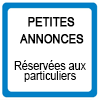
passer une petite annonce
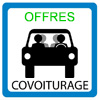
passer une annonce de covoiturage

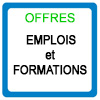
passer une annonce d’emploi
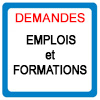
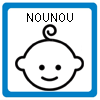
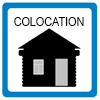
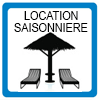
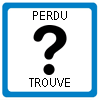
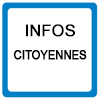
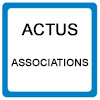
associations, postez vos actualités
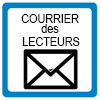
participez au courrier des lecteurs
La Guyane c’est ici
La qualité de l’Air avec
ATMO
Photothèque

Lancements 2022
Vol 259 Ariane 5



